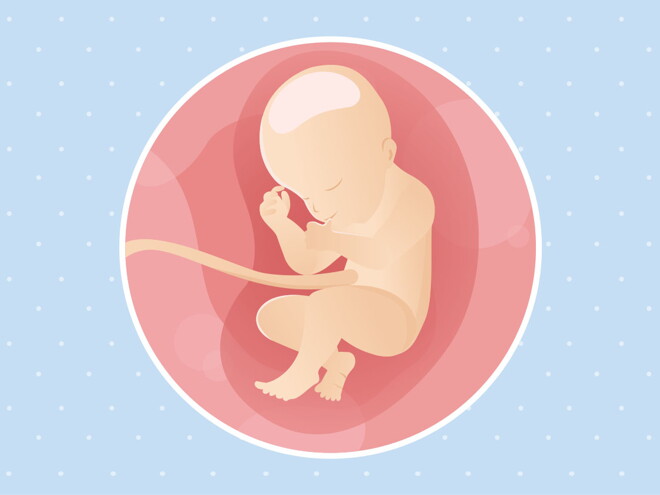
Pregnancy Week 31
As D-Day fast approaches, your little one is starting to turn upside down. What a clever baby! But you already knew that. Read more about this week.
BABY DEVELOPMENT
Your baby is still growing and growing. As of this week, she weighs half of what she will weigh at birth, and still has a few more centimetres to go as well. Meanwhile, she starts to get into the position she will have at the time of delivery: 95 % of pregnancies are delivered with the baby upside down, top of the head forward. This is called the "presentation" and will be determined at the next ultrasound. If during this test your doctor finds that your baby is not lined up correctly – and it doesn’t mean there is a problem if not! – he or she may make arrangements so that the birth of your baby goes smoothly, perhaps with a caesarean section.
YOUR BODY
If you are surprised by the size of your breasts, remember that your body is getting ready to breastfeed. The big moment is coming closer! Don’t be surprised if you find yellow flecks on your blouse or T-shirt once in a while: that is “pre-milk,” or colostrum. Though surprising, it is a good sign. It means your breasts are ready for feeding your child. The colostrum you give your baby in the first few days contains all the antibodies that boost your child’s immune system against infection immediately after birth. Not every woman produces pre-milk at this point. If you are one of them, you can protect your clothing with a nursing bra and breast pads. You can find them in any baby accessories store.
NUTRITION
As your baby will be putting on an additional 1 to 1½ kilos between now and his birth, an average of 200g per week, you need to adjust your diet a bit. That doesn’t mean you need to pack in loads more calories, merely that you need to make sure you are eating for both your and your baby’s energy needs. Lots of fresh fruits and veggies, good lean proteins, whole grains, “good” fats. It’s the best way to ensure that your little love has all the nutrients he needs without stealing from your reserves, leaving you too pooped to pop.
TIPS
The size of a woman’s breasts has absolutely nothing to do with how well she can nurse her baby. Repeat – there is no relation at all! Even if small-chested, you should have no problem breastfeeding your child. A woman with a small chest will not produce any less milk than a larger woman – the amount of milk is determined by how much your baby drinks and how well her sucking mechanism works. Yes, it’s all up to the baby!

